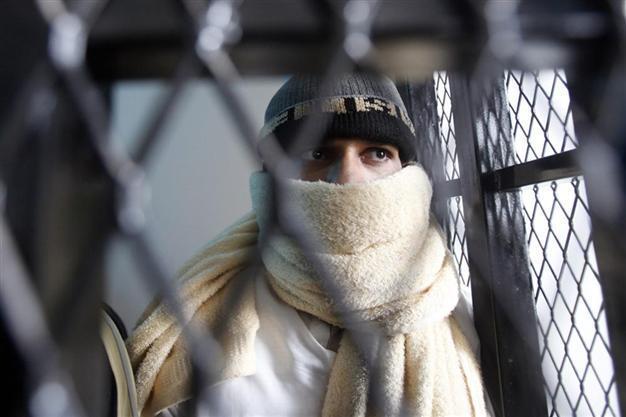Iraq executes four including Qaeda's Baghdad chief
BAGHDAD - Agence France-Presse

A suspected al Qaeda militant appears behind bars at the state security court of appeals in Sanaa March 26, 2013. REUTERS/Khaled Abdullah
Iraq on Monday executed Al-Qaeda's former Baghdad chief and three other men convicted of terror-related offences, despite calls for a moratorium its use of the death penalty.The executions brought to 22 the number of times Iraq has carried out the death penalty so far this year, compared with 129 in 2012, which was among the highest such figures in the world.
"These terrorists were executed by hanging," the justice ministry said in a statement. "They committed criminal attacks against the Iraqi people, notably in Baghdad and in (the western province of) Anbar."
Among the group executed was Munaf Abdul Rahim al-Rawi, once described as the "governor of Baghdad" for Al-Qaeda's front group in Iraq, who was arrested in March 2010.
He has been blamed for plotting two massive attacks in the Iraqi capital in August and October of 2009 that left 250 dead in total.
Security forces have said Rawi's arrest yielded crucial intelligence that helped lead to the killings in April 2010 of Abu Omar al-Baghdadi, the political leader of Al-Qaeda in Iraq, and Abu Ayub al-Masri, the insurgent group's self-styled "minister of war".
Iraq has executed at least 22 people so far this year, according to an AFP tally. It executed 18 people convicted of terror-related offences on March 14 and 17.
Al-Qaeda's Iraqi affiliate said nationwide attacks on March 19 that killed 56 people were "revenge for those whom you (the government) executed".
Justice Minister Hassan al-Shammari insisted last week that Baghdad would continue to implement the death penalty in the face of widespread calls for it to issue a moratorium.
Iraq's executions have sparked concern from the United Nations, as well as Britain, the European Union and rights groups Amnesty International and Human Rights Watch.
















